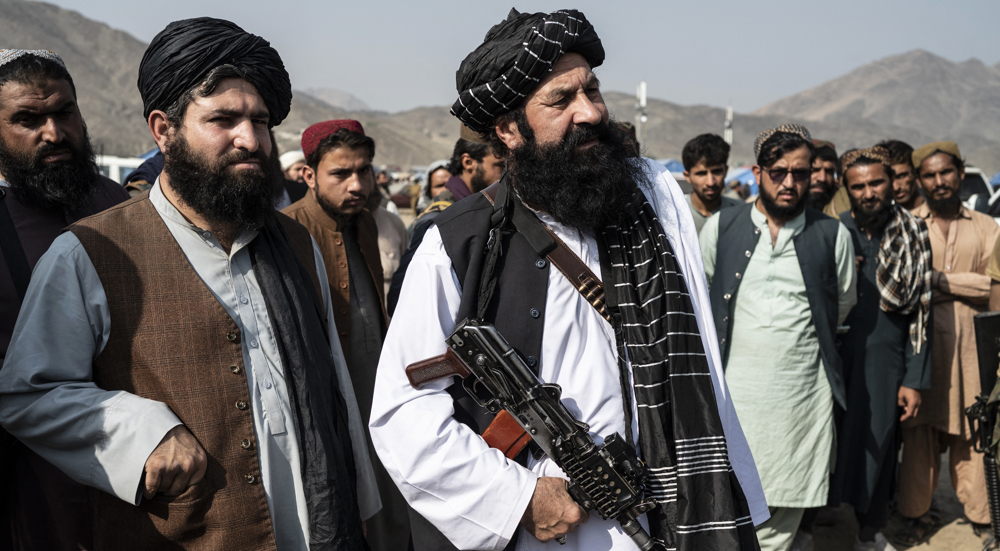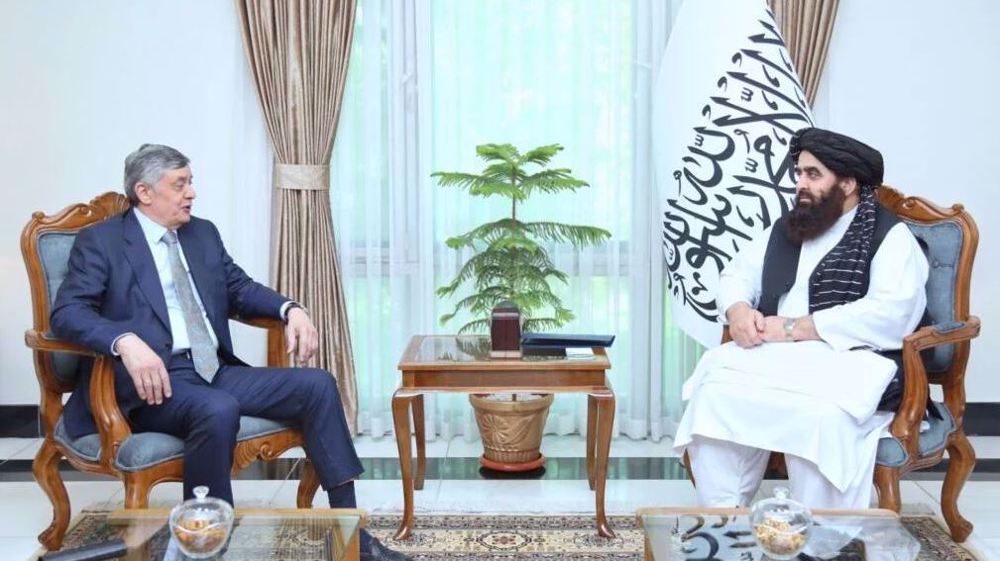Taliban’s head of Qatar office steps down
The head of the Taliban militant group’s political office in Qatar, Tayeb Agha, has stepped down, amid reports of a growing leadership rift over its recent power transition.
The announcement was made in a statement published on a website used by the Taliban office in the Qatari capital, Doha, on Monday.
Agha said in his statement that he had decided to end his “work as head of the political office,” which was set up back in 2013 to facilitate peace talks between the group and the Afghan government.
"I will not be involved in any kind of [Taliban] statements... and will not support any side in the current internal disputes within the Taliban," he added.
Agha criticized the group for keeping the death of its long-time leader, Mullah Omar, a “secret for two years,” calling it a “historical mistake.”
He also slammed the appointment of Mullah Akhtar Mansour as the new Taliban leader following the confirmation of Omar’s death, saying that the new leader should have been chosen by the majority of militants inside Afghanistan.
Earlier on Tuesday, however, the Taliban released a statement, signed by spokesmen Zabihullah Mujahid, denying reports of a division among the militants.
Although the Taliban militants have not provided details regarding Omar’s death, Kabul says he died in the Pakistani port city of Karachi in April 2013.
The group continued to release official statements in the name of Omar as recently as last month. Omar had not been seen in public since the Taliban was removed from power following the US-led invasion of Afghanistan in 2001.
Following the announcement of Omar’s death late last month, reports began to circulate suggesting the escalation of a leadership division among the Taliban.
Omar’s son Yacoub and his uncle, Mullah Abdul Manan, voiced their opposition to Mansour’s appointment, requesting a new vote.
It is widely believed that Omar had chosen the former deputy and co-founder of the movement, Mullah Baradar Akhund, as his successor.
'Next to impossible' to rescue patients from Gaza's Kamal Adwan Hospital: Director
VIDEO | Vietnam current prosperity
Report blames gasoil exports for shortage at Iranian power plants
VIDEO | Hind Rajab Foundation names Israeli war criminals vacationing after Gaza genocide
VIDEO | Australians rally for Gaza ahead of Christmas festivities
VIDEO | Attacks on Sana'a
Iran reports further drop in annual inflation rate in December
Israel indicts two settlers over suspected spying for Hezbollah










 This makes it easy to access the Press TV website
This makes it easy to access the Press TV website